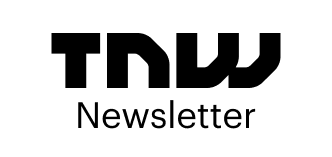The EU’s supercomputer alliance yesterday announced the winners of its AI startup competition. Four companies will split €1bn — and precious uptime on world-class high-performance computer systems to train their models.
Training and running AI requires massive amounts of computational resources. For example, as part of its deal with OpenAI, Microsoft built Eagle, one of the world’s most powerful supercomputers, for its new investment. Elon Musk is on track to build a massive Nvidia-based supercomputer for xAI, his new artificial intelligence startup.
It is no secret that the EU has been pushing hard for what it calls “digital sovereignty.” Fearful of once again of being left behind in a global tech race, the bloc has devoted billions of euros to its supercomputer alliance, known as the EuroHPC. Moreover, it has made a vow to make its supercomputers available to European AI startups.
Naturally, these startups can’t just rock up and demand time on the nodes. To that end, EuroHPC last year launched a competition called the Large AI Grand Challenge. On Wednesday, it announced the four winners that will share the cash prize of €1bn.
They will also get 8 million computational hours on the LUMI and LEONARDO supercomputers (these rank among the fastest HPC systems in the world, and are situated in Kajaani, Finland, and Bologna, Italy, respectively) over the next 12 months. Having access to such powerful systems reduces large AI model training time from years to weeks.
The four winners, selected from 94 submitted proposals, are:
Lingua Custodia, France. Fintech startup offering AI and natural language processing for the finance sector.
Unbabel, Portugal. Language technologies company combining human and machine translation for multilingual support for all 24 official EU languages.
Tilde, Estonia. Also focuses on machine translation along with AI-powered chatbots for the Balto-Slavic languages.
Textgain, Belgium. AI startup helping companies and organisations gain insights from unstructured data through predictive text analytics. Specifically, the company focuses on the analysis of hate speech.
EuroHPC also decided to award an additional 800,000 hours on the Mare Nostrum supercomputer in Barcelona to a fifth entry, namely quantum computing and AI startup Multiverse Computing from Spain.
Following the 12 months, the winning startups are expected to release them under open-source and non-commercial licences, or publish research findings.
